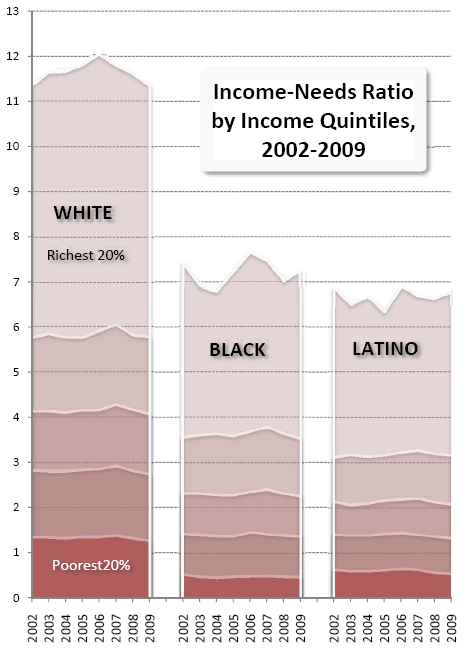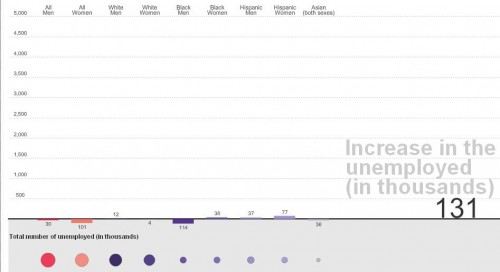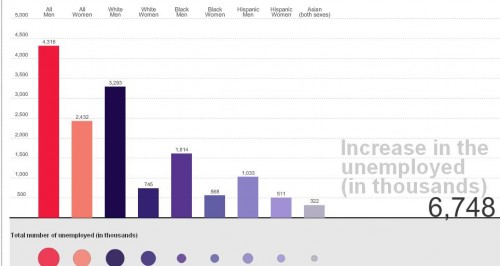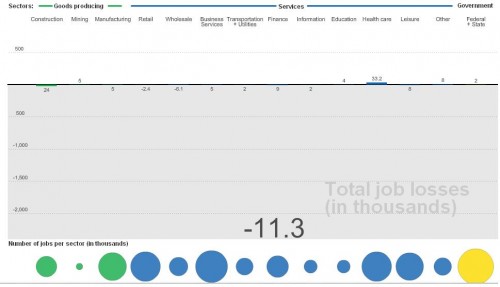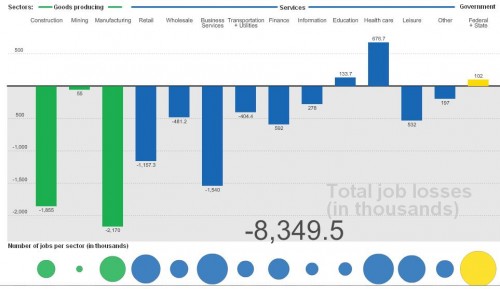The New York Times reports that there has been an increase in the percent of Black Americans reporting that they are “pretty” or “very” happy (though Blacks lag behind Whites in happiness). Indeed, while their happiness quotient appears to have dipped a bit this decade, Blacks have reported significantly higher rates of happiness in the ’80s, ’90s, and ’00s, compared to the ’70s.
Still, the article entirely skips over the fascinating gender difference. While American Black men’s happiness appears to have peaked in the ’80s and ’90s, they show real losses in reported happiness in the ’00s. In contrast, Black women’s happiness has been steadily rising; they neither express the same rapid increases or decreases that characterize the trend among men.
When we look at race and gender together, Black men are often among the most disadvantaged groups in society. They are among the most hard hit by the recession in terms of joblessness. They are less likely than Black women to enroll in and complete college. That said, I am hardly an expert in happiness studies… any ideas as to why the gender disparity in self-reported happiness would be so much stronger among Blacks than Whites?
Via Racialicious, and sender-inners Patricia P. and Dmitriy T.M.
Lisa Wade, PhD is an Associate Professor at Tulane University. She is the author of American Hookup, a book about college sexual culture; a textbook about gender; and a forthcoming introductory text: Terrible Magnificent Sociology. You can follow her on Twitter and Instagram.




